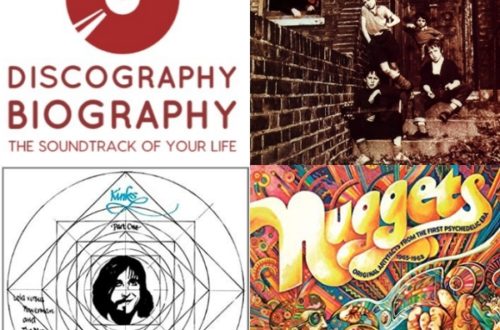It’s time for Discography Biography, POW’s monthly look into the mind, and the record collection of a various musician. For those who aren’t familiar with how it works, here’s a quick rundown:
As any music lover knows, there’s a huge difference between “desert island discs”, favorite records, most influential records, etc. The ones that interest me the most are the ones that are the most personal- the albums that define who you are, the ones that could be called the soundtrack of your life. Every month here on POW, I’ll be talking to a different musician about the top 3 albums that make up what I’ve affectionately titled their “Discography Biography”.
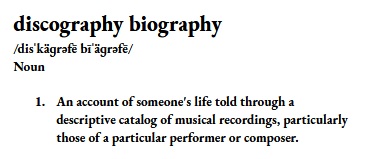
This month, following reading the fantastic Keep Music Evil: The Brian Jonestown Massacre Story, I spoke to the book’s author, Jesse Valencia. For this edition, I thought it’d be fun to have Jesse choose only BJM albums. Let’s jump right in:
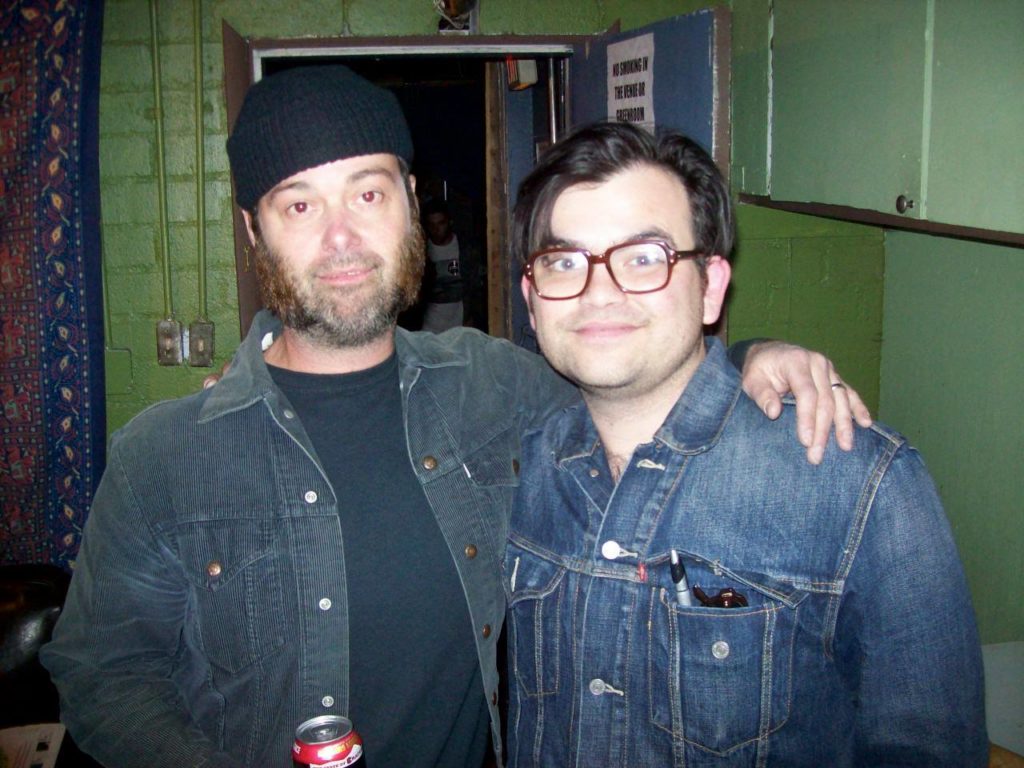
So, which 3 BJM albums have you chosen as your Discography Biography?
I’ve chosen Take It From The Man!, Give It Back!, and Revelation.
Okay, let’s start with Take It From The Man! When did you first discover it?
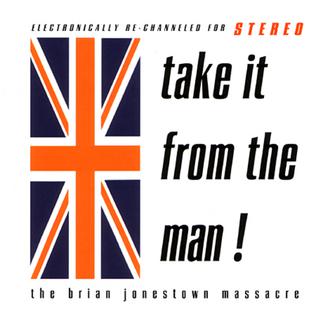
It had to be one of the first ones I picked up, which would have been around 2008 right after I saw ‘Dig!’…when I heard it, I realized the BJM were about five years ahead of the Garage Rock Revival that led to the Strokes and White Stripes and all those bands.
If you own a physical copy, what format is it in and where’d you get it?
I got it on CD first, and later I got the vinyl. The CD was one of the original Bomp! versions, and I think I might have got it at a Zia Records in Phoenix.
How long did it take to become so important to you?
Right after seeing ‘Dig!’ the entirety of Anton’s body of work became important to me, so with this, and every record since, they are equally significant.
Why does it mean so much to you? Is it the music, the lyrics, the time in your life that you found it, etc?
With Take It From The Man!, you can hear the sound of ‘the band.’ Methodrone, Spacegirl, and Satanic Majesties by that time, and all the other stuff was mostly Anton. Take It From The Man! was mostly Anton as well, because he overdubbed people’s parts, showed them what to play, and mixed the whole thing himself with Larry Thrasher engineering, but it’s really the sound of the band, and it’s so fucking good because you hear the little mistakes, and they’re beautiful. It has this raw, almost punk energy to it that puts it up there with The Stooges and bands like that.
Are there any particular songs that are your favorites?
My absolute favorite song on this record to jam out to is ‘Caress’ but I also love ‘Straight Up And Down.’ The buildup to the guitar solo is so great, and then once it goes to that place it just rips.
Since writing the book, have your feelings about the album changed (after learning all about the stories and details behind the album’s creation and recording process, does it take away some of the magic for you, or make it even more special?
Learning more about your favorite records and how they were made always makes it more special. I think the most important thing about it is the truth about when, where, and how the record was made versus the myth. For years the myth was Anton made Take It From The Man during the day and Their Satanic Majesties Second Request at night, or maybe it was vice versa, but hearing the stories from Larry Thrasher and then some of the band members and other people who were around at that time gives the story of the record new dimensions that only enrich it for fans.
Alright, let’s move on to Give It Back!. Again, when did you discover this one?
The making of this record is largely accounted for in ‘Dig!’ so I would have to say it was then, but I got my hands on the actual record at Bookman’s Exchange in Flagstaff.
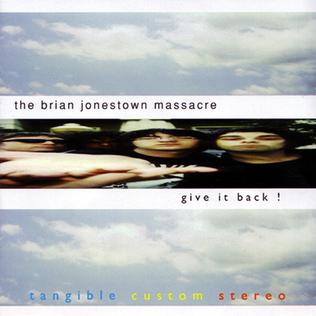
How long did it take to become so important to you?
Immediately.
Why does it mean so much to you? Is it the music, the lyrics, the time in your life that you found it, etc?
The important thing about Give It Back! is that it was hands-down the best record they did in the 90’s. A lot of people say it’s Strung Out In Heaven but Give It Back! feels more complete to me. It was mish-mashed from different sources because Anton had recorded part of it in Portland, and then some in Los Angeles, but what’s cool about that record is it blends sort of everything that came before it into one sound – it has the garage rock, the psychedelia, the folk, the rock and roll, the shoegaze…and it happened right there when they were on the edge of superstardom, which anyone whose read the book will know how all that turned out.
Which songs are your faves? Why?
I love ‘Malela’ because it reminds me of the Stones, but the best track on that record is easily ‘Whoever You Are,’ and I think it’s because it gives me that same spaced-out dreamy feeling that ‘Straight Up And Down’ or ‘Anemone’ does.
Since writing the book, have your feelings about the album changed (after learning all about the stories and details behind the album’s creation and recording process, does it take away some of the magic for you, or make it even more special?
None of the magic has been lost. If anything, it’s only the mystery which deepens.
Alright, moving on to your last pick, Revelation. When did you discover this one?
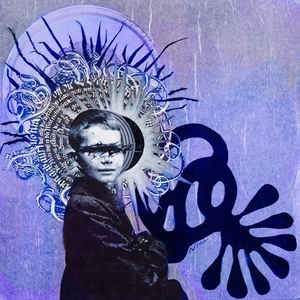
By this time, Anton was recording and releasing everything he cooked up on YouTube, so there was that aspect of it, but Ricky also slipped me a bunch of demos he made with Anton for it, and out of those I think only ‘Unknown’ and ‘Nightbird’ made it to the record.
If you own a physical copy, what format is it in and where’d you get it?
Vinyl, and probably from the Cargo records store.
How long did it take to become so important to you?
When I heard it, I thought it was the best one Anton had done since ‘And This Is Our Music.’
Why does it mean so much to you?
In 2014, I was right in the thick of writing the book, right in the middle of it, and around that time we had played shows with Joel and Matt, and my band Gorky was coming from this more post-punk/alternative rock place at the time, and I think Revelation was so cool because, like Give It Back! it blended together a lot of what Anton had done in the previous years. Aufheben felt very much like a new Satanic Majesties and Revelation felt very much like a new Give It Back!, and it opened my mind to thinking about songs more orchestrally.
Are there any particular songs that are your favorites?
‘Food For Clouds’ hands down. I love the way the melodies and harmonies supplement each other. You can learn a lot from listening to that song.
Since writing the book, have your feelings about the album changed (after learning all about the stories and details behind the album’s creation and recording process, does it take away some of the magic for you, or make it even more special?
There’s something of a bittersweet feeling attached to the record because it was the last one I really dug into and tried to find out about and figure out. After that, we played these shows with Joel and Matt and it was time to fly the BJM coop as it were and continue forth with Gorky.
Overall, how have these 3 albums affected you as a musician? How did they affect you personally?
I chose those three specifically because of their influence on me as a musician. When I first heard the Brian Jonestown Massacre what drew me into their music was that it sounded like a new version of all the 60’s psychedelia and 70’s glam and proto-punk I was getting into and wanting to play, so specifically Take It From The Man! and Give It Back! really expanded my ability to receive ideas in those veins, because that’s exactly what Anton was doing with the Brian Jonestown Massacre then and it was what I’d always wanted to do with Gorky. He was acting as this cultural conduit filtering the past for its new representation in the future. He alone did that, and is responsible for why it’s relevant now, arguably by virtue of his madness alone. Of course, that scene is there, and Anton is a part of it, but I think the book makes it clear that without Anton, you would not be hearing about bands like The Black Angels, Tame Impala or King Gizzard now. Anton’s approach to making records and how he makes music in his mind as he goes along has been profoundly helpful to me, because it’s a toolkit I didn’t possess before working on the book. That’s what I really picked up on, and I applied what I learned from Anton to the new Gorky record, and then in a way if you read between the lines, the book is a sort of instruction manual for that.
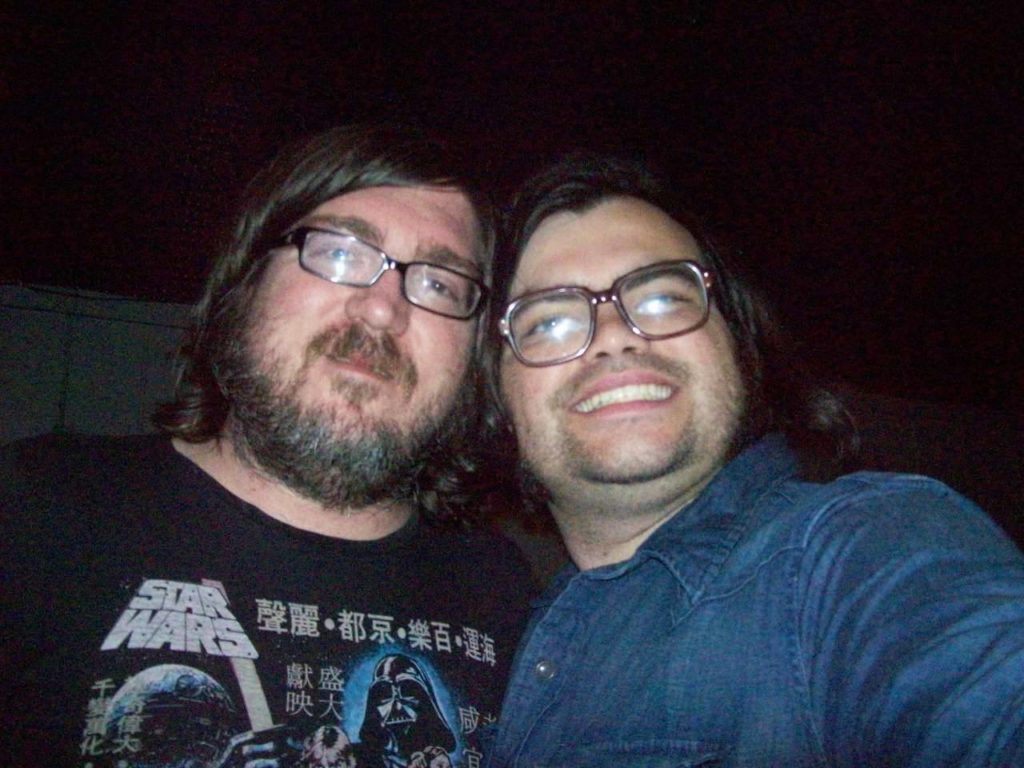
Are there any of your choices that you think people might be surprised by?
I think people would be surprised by what I didn’t choose, because there are really so many great ones. Methodrone, TheirSatanic Majesties Second Request, Bravery Repetition, and Noise, and And This Is Our Music are all fantastic records. My Bloody Underground. Who Killed Sgt. Pepper?Aufheben. I really love everything Anton has ever done.
It’s hard picking just 3. So were there any honorable mentions that didn’t quite make the cut?
One of the last times Anton and I talked directly, very early on in the book like ten years ago, he told me to write on a piece of paper “you are fucking rad, Jesse” and on the other side write “don’t get lost.” It was pretty rad to me that years he later did an album called Don’t Get Lost, which is one of my personal favorites. I love how it just has this transcendental quality about it. It was either that or Revelation.
If someone had never heard the BJM, would these be the 3 albums you’d recommend to them? If not, which ones would you choose as the best representation of the band?
Before I recommended any albums I would first have them watch ‘Dig!’, then I’d give them a copy of ‘Keep Music Evil: The Brian Jonestown Massacre Story,’ and then I would give them Tepid Peppermint Wonderland, Strung Out In Heaven, and Revelation because those three together I think represent the cream of the crop. The rest I would recommend they find out about on their own.


